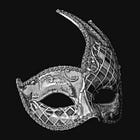Modern Resistance Demands Discipline: Stop Making Yourself a Target
OPSEC is still, always, forever a big deal.

If you're dead, arrested, or compromised, you're not a hero. You're off the chess board.
A lot of well-meaning people in the activist space don’t understand OPSEC (operational security)—or worse, they think it doesn’t apply to them. They slap bumper stickers on their cars, want to be seen holding signs and wearing T-shirts, proudly proclaim their positions, argue online for hours, and call it all courage.
But let’s be brutally honest: courage isn’t about being seen. It’s about being effective in spaces where you might have good reason to be afraid. And if you're exposing yourself or your group to avoidable risk, then you’re not brave—you’re reckless.
This post is OPSEC 101. Not from a military or corporate view—but for people like you. Activists. Preppers. Patriots. People with something to protect and something to lose. That includes your political efforts.
What Is OPSEC, Really?
OPSEC is preservation. It’s a process that protects your people, your plans, and your progress by keeping adversaries from getting usable information.
Think of it like this:
OPSEC is the art of keeping your enemy dumb enough to fail at knowing your plans.
Even if you think you’re not doing anything sensitive, you probably still are. And you’re probably already using OPSEC in small ways—covering your PIN, using burner emails, meeting strangers in public places.
The issue isn’t whether you use it. It’s where you’re not using it—and why that might take you out of the game.
The idea that “free speech protects me” is increasingly irrelevant.
You can be doxxed, fired, arrested, audited, or digitally assassinated, because you said something unpopular. And your enemies are actively looking for ways to exploit your exposure.
Why Reckless Visibility Isn’t Brave
Imagine a chess board. Every piece has strengths and vulnerabilities. Even the queen is worthless if you move her wrong.
If you:
Get jailed over a careless mistake
Lose your job over a tweet
Get your family targeted because of a bumper sticker
…you’re no longer helping your cause. You’re draining it.
And in some cases, you're handing your opponents a perfect narrative:
“See? These people are dangerous.”
If you're removed from the board, your team loses a player. And you lose your ability to contribute at all.
“But Isn’t It Cowardly to Hide?”
Discretion isn’t cowardice. It’s discipline.
And when someone calls you a coward for being smart, it's often because they need to feel brave themselves. Don’t play that game.
You don't win in this battlespace by being the loudest. You win by staying in the game longer than your enemies.
OPSEC Is Strategy
Every decision you make has consequences:
Posting that video = potential facial recognition hit
Bragging about an action = admissible in court
Stickers, hats, logos = identity markers for surveillance
OPSEC isn’t about pretending to be someone you’re not. It’s about choosing how much of who you are to expose, when, and why.
That’s called cover for status and cover for action. If you don’t know those terms, you’re overdue for a deeper dive.
Final Thought
If your goal is the cause, then OPSEC helps you stay in the fight.
If your goal is validation, being seen, or moral theater—then OPSEC will feel like suppression.
Which one are you here for?



